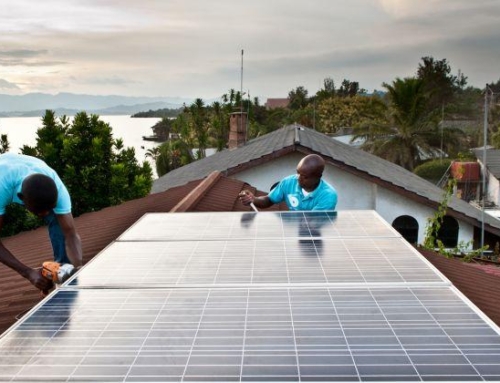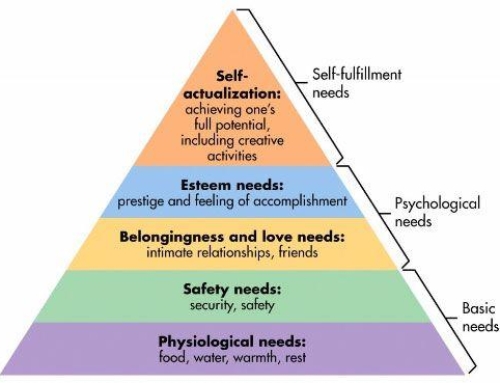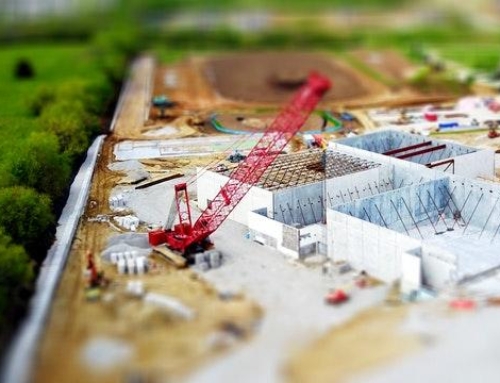It’s not easy living in a rented house, especially if you live and work in metro-cities like Lagos, Abuja, and Port-Harcourt. The money you’ll be spending on rent is no child’s play and after putting up with this for a while, there will come a point when you will be tired of giving up your hard earned money to your landlord every year as rent.
Owning your own house provides emotional and financial security and, in Nigeria, it’s considered a symbol of success. There are primarily two ways of owning your own house in Nigeria; building it or buying it.
Building your own house is the most common way of owning a house in Nigeria, but thanks to the increasing investments in real estate by developers and financial institutions, there’s a growing opportunity for Nigerians to buy a home for themselves through online portals.
For the purpose of this article, we would be focusing on the first way to own a house in Nigeria, which is to build it.
This article is going to prepare you ahead for that time when you decide to build your own house in Nigeria. And just before you get started, you need to check out these residential building construction mistakes in Nigeria and how to avoid them.
How to Successfully Build Your Own House in Nigeria
There’s a lot that goes into the building of your own house. And even though you have all the money; there are still some critical questions that needs to be answered for you to successfully build your own house in Nigeria.
Such as; how would you build your house? Who should you have on board? Who are the likely contractors, architects, quantity surveyors and engineers you will be working with? Do you even need all these people?
These questions and many more all need to be answered when you want to build your own house in Nigeria. So let’s start with the basics; how would you build it?
2 Common Ways to Build Your Own House in Nigeria
In Nigeria, there are two very common approaches to building a house in Nigeria. The first, and which is by far the most common approach is the Do-it-yourself (DIY) method and the second is by way of Design-and-Build.
- In the Do-it-yourself (DIY) method, the client (owner) has all the money in place, buys a house plan from an architect or draws one up by themselves, purchases all the material and takes up the service of a contractor to provide labor – bricklayers, plumbers, casuals and electricians – such that it is the contractor’s role to direct the construction activity to completion.
- In the Design-and-Build method, the home owner approaches a developer/construction company like us. The developer has a team in place that will consist of professionals – contractors, sub-contractors, architects, and quantity surveyors – each with defined roles.
While there’s no right or wrong method to use when building your own house in Nigeria, both of these approaches have their own advantages and disadvantages. Let’s take a closer look at the first and most popular approach to building your own house in Nigeria; the Do-it-yourself (DIY) method.
5 Key People You Will Need to Build Your Own House in Nigeria Using the Do-it-yourself (DIY) Method
When you decide to build your own house in Nigeria using the Do-it-yourself (DIY) method, your role as the owner is unlimited. Starting with the most obvious, you will determine the budget, you will provide the money, you will deal with the following 5 key people, you will have to make yourself available on site regularly, you will inspect the materials, inspect the quantities and a whole lot of other responsibilities.
This is one of the most obvious disadvantages of doing it yourself. But if you still want to Do-it-yourself, below are the 5 key people you will need to come on board when you decide to build your own house in Nigeria using the Do-it-yourself (DIY) method.
- Architect: The Architect is the artist behind the looks and the beauty of a house. An architect comes up with a floor plan, elevation, roof design, interior design and proposed material. The owner will work with the architect by issuing a client brief based on the owner’s taste – how many rooms, how many floors, type of roofing you desire and so on. The architect is majorly involved in the initial stages of development and his involvement decreases as the project progresses.
- Quantity Surveyor: The Architect will furnish a Quantity Surveyor with the finalized plan. The quantity surveyor will come up with a Bill of Quantities (referred to as BoQ or BQ). This is a document that shows what work will be done at what stage using which materials, by which means and costing how much. The quantity surveyor will be involved in certifying payment schedules after every stage to certify that indeed the work has been carried out in the manner prescribed.
- Contractor: Once the idea is conceived by the architect, the BoQ has been drafted and a plan is approved by the local authorities, the services of a contractor can be procured. A contractor is simply a business person who supplies the machines, labour and material for construction. Again here, as the owner you may choose to supply the material by yourself or you may leave it entirely to the contractor. The contractor may select sub-contractors such as electrical sub-contractors, plumbing sub-contractors and so on. The contractor may or may not have an engineering background, though most contractors double up as engineers.
- Structural Engineer: In residential houses, the work of an engineer may be minimal but essential. A structural engineer will assess the house plan and advice on strength of material to use (for example, size of steel reinforcement bars, optimal size of columns and so on). The engineer will periodically supervise construction to ensure the structural soundness of the building.
- Civil Engineer: A civil engineer will be involved in works such as design of drainage, septic tank, swimming pools and driveways. It is worth noting that for an architect, the word ‘design’ means how it looks, whereas for an engineer ‘design’ means how it works.
These parties to a construction will be sourced by the owner since they want to use the Do-it-yourself (DIY) method. But, alternatively, if they decide to use the second method of Design-and-Build, the developer/construction company that you approach will already have a consortium in place.
So, if it is your first time building your own house in Nigeria, the more convenient route is to use a property developer/construction company like us with a team of professionals in place in order to reduce losses and worries.
SOURCE: sapientvendors.com.ng





